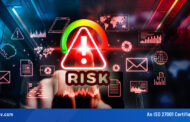Since the world has evolved so much over the past few decades, so too have the threats businesses face daily. There is no denying that cybercrime has become a destructive force that harms businesses irreparably. Whether they are holding private financial information for ransom or stealing information, cybercriminals have no limits on the damage they can do to your company.
As the industry has grown and evolved, cybersecurity has also evolved. Businesses can protect their digital assets in many ways, from using new technologies to hiring cybersecurity professionals. Implementing cybersecurity measures tailored to specific industries can be accomplished.
By taking this approach to cybersecurity, you will be in a better position to safeguard your business.
Here are some reasons why industry-specific cybersecurity measures are important.
Knowing Which Threats Are Most Prevalent in Your Industry
Each industry faces a different set of cybersecurity threats. It is important to understand what cybercrime threats are typically the most dangerous for your industry in order to protect it from cybercrime. By analyzing data, you can find out which types of cybersecurity threats pose the greatest risks to your business. Knowing common threats is important, but it is also important to understand your company’s specific vulnerabilities.
There are a number of threats specific to each industry, including:
Compromised Third-party Vendors in Healthcare
Healthcare organisations frequently interact with a wide variety of outside vendors to ensure efficient operations and business procedures. This comprises companies that provide linen services, medical equipment services, cloud services, etc. The fact that third-party networks may have access to the networks of healthcare institutions is known to cybercriminals, making them an attractive target. Given this, third-party networks being compromised and allowing hackers access to the networks of healthcare institutions have grown to be a serious concern to the industry.
Phishing in Banking
The world, like banks, has evolved over time. Financial data from banks has become almost entirely digital and is therefore accessible digitally. Phishing scams have been used by cybercriminals to exploit this by tricking customers into providing their private information. Cybercriminals use phishing scams to trick victims into downloading malware that grants them access to their personal information. They do this by pretending to be someone else, such as a bank employee. Over the last few years, banks have faced a number of noteworthy cybersecurity threats, including phishing schemes.
Data Breaches in Cloud Computing
Data storage on the cloud has become a common practice for businesses of all sizes. Most businesses enlist cloud storage providers for this purpose. There are many cloud storage providers, but unfortunately, not all are secure.
Cybercriminals are aware that cloud service providers frequently retain sensitive customer and employee data that is essential to business operations. For these reasons, they routinely try to get past security measures and access data that are stored on a variety of cloud networks. Due to the prevalence of this issue, it is now a top priority in business and cloud computing to make sure cloud storage providers follow safe procedures.
Industries that Have the Most Need for Sector-Specific Cybersecurity
Cyberattacks are especially likely to target some niche businesses. This is due to the fact that each of them has unique weaknesses that fraudsters frequently try to exploit. Here are a few sectors that have a pressing need for sector-specific cybersecurity protections
Healthcare Industry
When it comes to cybersecurity concerns, the healthcare sector is particularly weak. This is due to the fact that their networks frequently contain vast quantities of personal information and healthcare information about a large number of people. The Health Insurance and Portability Act (HIPAA), created by the American federal government as a national standard to which all healthcare organisations must conform, was created to assist ensure that patient information is kept secure.
The Privacy Rule, which specifies that patient information cannot be shared or used in specific ways without the patient’s agreement, is one of the most important aspects of HIPAA. It also stipulates that healthcare organisations are required to follow a number of important information security procedures in order to protect patient information.
Banking and Payment Card Industries
The banking sector is one of the soft targets and the primary target of cybercrime. Individuals and businesses can access vast amounts of financial and banking information through these firms’ networks. Moreover, the payment card industry is always vulnerable to cybercriminals exploiting it.
A group of payment card companies, led by the Payment Card Industry Security Standards Council (PCS SSC), formed the PCI Data Security Standard (PCI DSS) to combat these threats. Essentially, the PCI DSS is a comprehensive security standard designed to protect banks, payment card companies, and consumers from fraud and cyberattacks.
Cloud Computing Industry
Since cloud computing technology has been developed over the past decade, organizations have experienced greater convenience when storing, processing, and transmitting data online. Because cloud computing holds a large amount of sensitive data, cybercriminals constantly target the industry.
Cloud computing companies are frequently attacked by data breaches, employee threats, and account hijacking. Organizations using the cloud must follow several security best practices, industry standards, and regulations to ensure their infrastructure is secure. To address these security issues and encourage organizations to implement best security practices, regulations and standards have been created including GDPR, CPRA, PCI DSS, etc.
Final Thought
Cybercriminals are becoming more adept at exploiting vulnerabilities as their methods of committing cybercrime evolve, making it more important for businesses to upgrade their security standards and practices. Keep your business secure against any potential threats by staying ahead of the industry. However, attempting a one-size-fits-all cybersecurity approach may leave your business exposed and unprotected in numerous ways.
Business owners need to analyze industry standards and requirements for business asset security and build a strong compliance program accordingly. To ensure that cybersecurity measures and programs are tailored to your specific business and industry, it is important to audit and review existing cybersecurity programs and measures.







